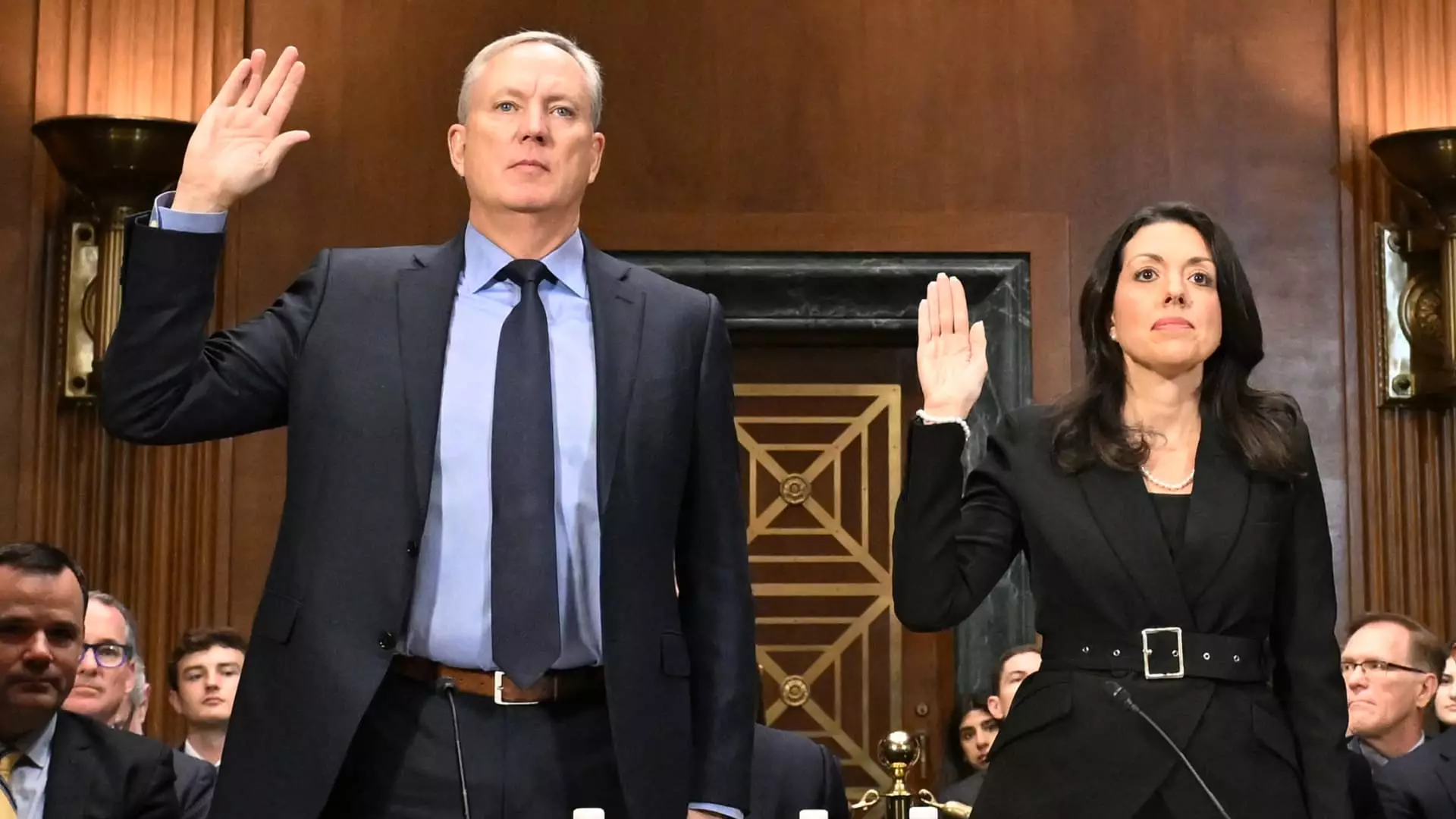The recent hearing convened by the Senate Judiciary Committee spotlighted a pressing issue in the realm of credit card transactions: the hefty interchange or swipe fees imposed by Visa and Mastercard. With bipartisan support, the committee mulled over the current “duopoly” that leaves small businesses and retailers powerless when it comes to negotiating these fees. Even within the contentious political climate of today, consensus emerged among some of the most conservative and progressive members, indicating the gravity of the situation.
Interchange fees are paramount in understanding the financial dynamics of credit card usage in retail. Whenever a consumer uses a credit card, a fee is extracted from the merchant’s bank account, funneling funds from businesses directly into the banks that issue credit cards. These interchange fees can significantly inflate operational costs for small businesses, which typically run on razor-thin margins. In 2023 alone, merchants were burdened by over $100 billion in fees, an expense that often ranks among their top financial liabilities. This fee structure creates an environment where retailers can only pass on these costs to consumers, resulting in inflated prices across various goods and services.
In response to this economic quandary, Senator Dick Durbin and Senator Roger Marshall are sponsoring the bipartisan Credit Card Competition Act. The proposed legislation aims to dismantle the overwhelming grip of Visa and Mastercard on the credit card market by compelling banks with over $100 billion in assets to provide alternative payment networks. For small businesses, the significance of this change cannot be overstated. The potential for variety in payment options could allow them to choose networks with significantly lower fees, ultimately giving them a fighting chance in a competitive marketplace.
In contrast to the supporters of the Credit Card Competition Act, representatives from Visa and Mastercard contend that interchange fees serve as necessary incentives for financial security and customer service. Bill Sheedy, Visa’s senior advisor, emphasized the extensive costs associated with payment processing, including fraud prevention and customer service guarantees. From the perspective of these payment giants, reducing interchange fees could compromise the high standards of service and security that customers expect.
Mastercard President Linda Kirkpatrick echoed these sentiments, recalling past legislative interventions such as the 2010 Durbin Amendment, which she claimed led to unintended negative consequences like the elimination of debit card rewards and reduced market competitiveness. According to their narrative, implementing the proposed changes could inadvertently compromise consumer control, competitive balance, and technological innovation in the payment processing space.
Nonetheless, the impact of high interchange fees on consumer spending is significant and often overlooked. Research suggests that the average American spent approximately $1,100 in swipe fees last year, a sum greater than typical expenditures on essentials like pets, coffee, or alcohol. This raises the critical question: at what point do the fees charged by these payment networks become an unreasonable burden on consumers and businesses alike? Advocates for the Credit Card Competition Act argue that the measure is imperative for achieving fairness and transparency in the payment ecosystem.
The conversation around interchange fees is further complicated by legal challenges facing Visa, including a lawsuit by the Justice Department accusing the payment network of maintaining an illegal monopoly over debit card payment networks. Such claims underline a systemic issue potentially extending beyond consumer prices and fees, affecting the overall economics of market competition.
As the industry grapples with these challenges, the proposed $30 billion settlement between Visa and Mastercard aimed at reducing swipe fees was recently dismissed by a federal judge, suggesting a robust judicial scrutiny of payment practices. The judge’s ruling illustrates that the call for reform resonates not just politically but also within the sphere of legal accountability.
The hearing hosted by the Senate Judiciary Committee represents a crucial step in addressing the monopolistic practices of Visa and Mastercard. As the proposed legislation underscores, there is an urgent need for a payment processing framework that equitably benefits small businesses, consumers, and the economy as a whole. While the giants of the credit card industry present compelling arguments about the necessity of their fees, the tide appears to be shifting towards a demand for transparency and fairness in how transactions are processed. The outcome of these discussions may very well determine the future landscape of payment systems in America.

Leave a Reply